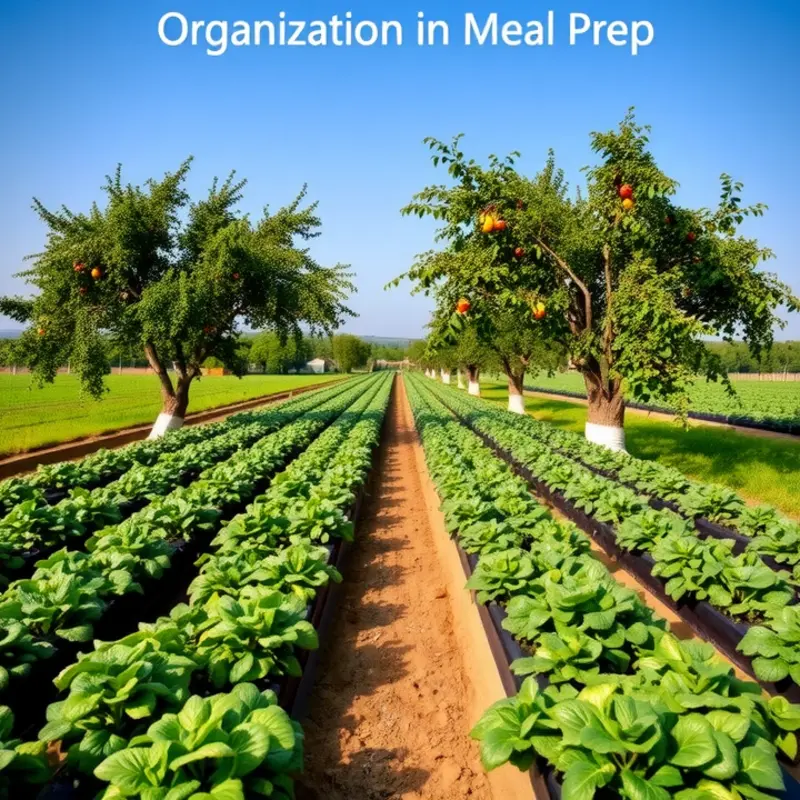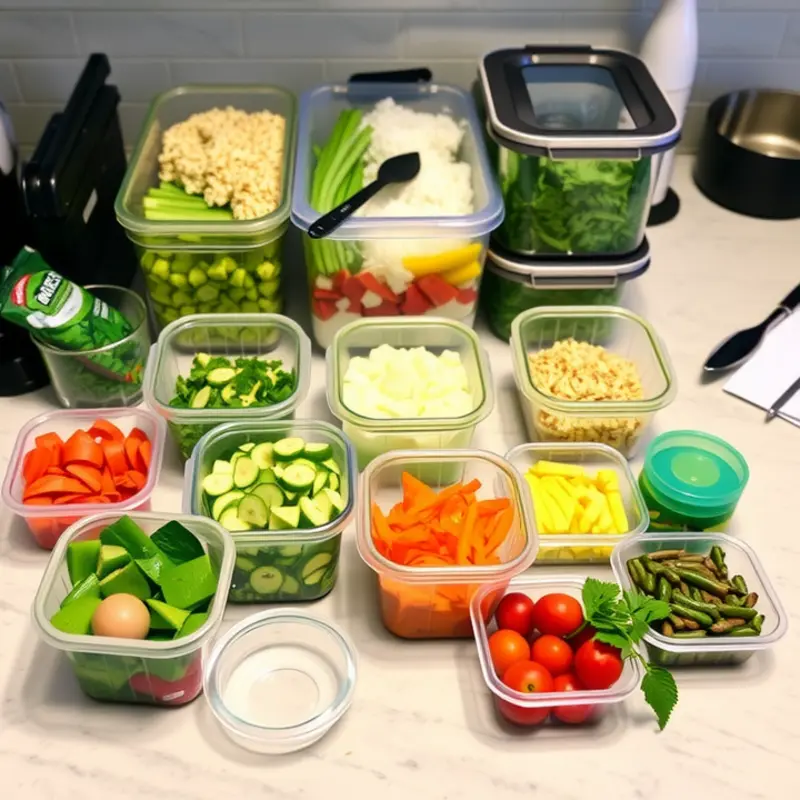Balancing a hectic schedule while trying to eat healthily can feel overwhelming. Meal prepping offers a solution to streamline your cooking process, ensuring you have nutritious meals ready to go, even on the busiest days. With a few strategic steps, you can simplify your meal routines and reclaim valuable time. This guide will provide you with practical and easy-to-implement meal planning and prepping strategies that fit seamlessly into your busy lifestyle.
Smart Planning: The Foundation of Meal Prep

Creating a manageable meal plan starts with a comprehensive evaluation of your week. Begin by outlining your professional commitments, family activities, and social engagements. This clear view of your schedule will be the cornerstone of your meal planning, ensuring each meal aligns with your available time and energy.
Once you have a handle on your week’s blueprint, it’s time to build your menu. A balanced approach includes a combination of quick meals, those that require minimal preparation, and some dishes prepared in advance. Factor in meals that can double-duty, like a roasted chicken on Monday that transforms into Tuesday’s tacos. Repeating elements not only saves time but can also cut down on waste.
Leverage the power of digital tools like calendars or meal planning apps. These resources can streamline the process and provide a visual reference to your meal plan. By embedding these tools into your daily routine, you reinforce habits that transform meal planning from a chore into a seamless component of your lifestyle.
Prioritize meals using overlapping ingredients to optimize your grocery list. This strategy minimizes food waste and ensures you’re not caught off guard by missing a critical component. Check out resources such as practical ingredient batching to streamline your process further.
Incorporating a few staple recipes into your repertoire can be a game-changer. These are adaptable dishes that can accommodate available ingredients or leftover items. Think of a base pasta dish or stir-fry that welcomes various proteins and vegetables. Having these flexible options can eliminate the stress of last-minute meal decisions and encourage creativity and resourcefulness in the kitchen.
Grocery shopping becomes a targeted mission when you’re prepared. With a clear list derived from your meal plan, trips to the store become efficient and focused. This not only saves time but also curbs the temptation to make spontaneous, often unhealthy, purchases.
Smart planning fosters a sense of organization that transcends beyond the kitchen. When meals are pre-planned, the daily question of “What’s for dinner?” is already answered, freeing mental space for other priorities. This foundational strategy ensures your meals fit smoothly into your week, making meal times less about stress and more about enjoyment and nourishment.
Efficient Prepping: Making the Most of Your Time

Once your meal plan is ready, the next step is to streamline your cooking by focusing on efficient prep work. Dedicate a few hours on your designated day to batch-cooking staple foods. These include grains like rice and quinoa, proteins such as chicken or tofu, and an assortment of chopped vegetables. Preparing these in larger quantities not only saves time but also makes weekday meals more manageable.
For a successful prep day, invest in quality storage containers to maintain the freshness and organization of your ingredients. Ensure each container is labeled with the preparation date and intended meal purpose, which helps eliminate confusion during your busy week. This simple yet effective step enhances both clarity and efficiency in your kitchen routines.
Freezing meals is another excellent strategy to maximize your kitchen time. Consider preparing dishes that can be rapidly reheated or are reserved for the busier days ahead. Soups, casseroles, and pasta dishes often freeze well and taste just as good, if not better, when reheated. To assist in maintaining meal flavor and quality, follow proper freezing techniques which can be found in this guide on safer storage practices.
Don’t overlook the usefulness of quick-fix items like frozen veggies or pre-chopped options available at many grocery stores. Having these on hand ensures you can prepare a nutritious meal swiftly without compromising on your dietary goals. Consider integrating these into your meal prep plan for added flexibility.
Lastly, diversify your approach by considering the versatility of ingredients that support various functions beyond just nutritional needs. Incorporating functional foods and superfoods into your prep can elevate the nutritional value of your meals without additional effort.
Efficient kitchen prep is less about speeding through tasks and more about setting up your week for culinary success. By investing a little time and effort upfront, you’ll save precious time during busy weekdays, allowing more room for relaxation and other activities that enrich your life.
Final words
Meal prepping is a practical approach to managing your cooking time while ensuring you and your family enjoy home-cooked meals. By planning ahead and prepping ingredients in advance, you can simplify your mealtime routine and take control of your kitchen. Embrace the convenience that meal prep offers, and you’ll find that it not only saves time but also reduces stress regarding what to eat. Empower yourself to reclaim those precious hours, and make mealtime a more enjoyable experience for everyone. Remember, a little planning goes a long way in creating a successful meal prep strategy.







